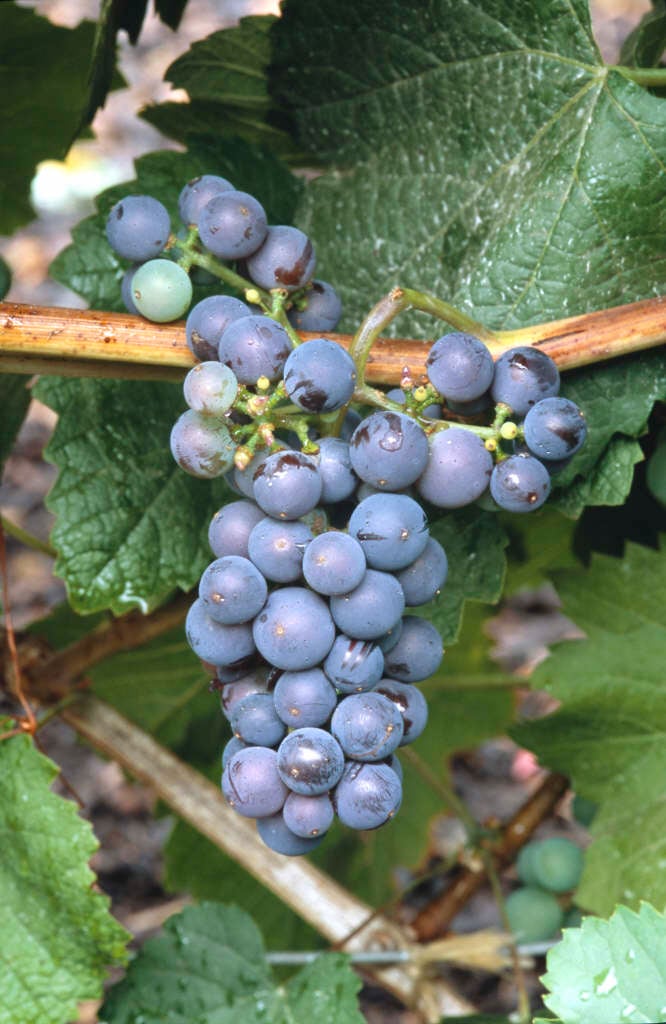Vitis 'Brant' (O/B)
grape 'Brant'
A vigorous, deciduous climber about 7m tall, with rounded, palmate, 3-5 lobed, bright green leaves to 22cm long, turning deep bronze-red with green veins in autumn Insignificant greenish summer flowers followed by large bunches of edible, blue-black grapes

Buy this plant
Size
Ultimate height
4–8 metresTime to ultimate height
5–10 yearsUltimate spread
2.5–4 metresGrowing conditions
Moisture
Well–drainedpH
Alkaline, NeutralColour & scent
| Stem | Flower | Foliage | Fruit | |
| Spring | Green | |||
|---|---|---|---|---|
| Summer | Green | Green | ||
| Autumn | Red Purple | Black | ||
| Winter |
Position
- Full sun
Aspect
South–facing or West–facing
Exposure
Sheltered Hardiness
H5Botanical details
- Family
- Vitaceae
- Native to GB / Ireland
- No
- Foliage
- Deciduous
- Habit
- Climbing
- Potentially harmful
- Pets (dogs): Harmful if eaten whether fruits are edible or ornamental - for further information and contact numbers regarding pets, see the HTA guide to potentially harmful plants
- Genus
Vitis are vigorous deciduous climbing shrubs with tendrils and attractively lobed leaves, insignificant green flowers followed by often edible fruits; some have excellent autumn foliage colour
- Name status
Accepted
How to grow
Cultivation
Grow in full sun, in well-drained, humus-rich soil, preferably neutral to slightly alkaline, mulch to keep soil moist. See grape cultivation
Propagation
Propagate by layering in autumn or hardwood cuttings in late winter
Suggested planting locations and garden types
- City and courtyard gardens
- Cottage and informal garden
- Climber and wall shrubs
- Edible fruit
- Wall side borders
Pruning
Pruning group 11 in midwinter, and in midsummer to restrict growth if necessary. See grape pruning
Pests
May be susceptible to grapevine blister mite, glasshouse red spider mite, brown scale, woolly vine scale and spotted wing drosophila (fruit fly)
Diseases
May be susceptible to powdery mildews, grey moulds, honey fungus and virus diseases; see grapevine diseases
Get involved
The Royal Horticultural Society is the UK’s leading gardening charity. We aim to enrich everyone’s life through plants, and make the UK a greener and more beautiful place.